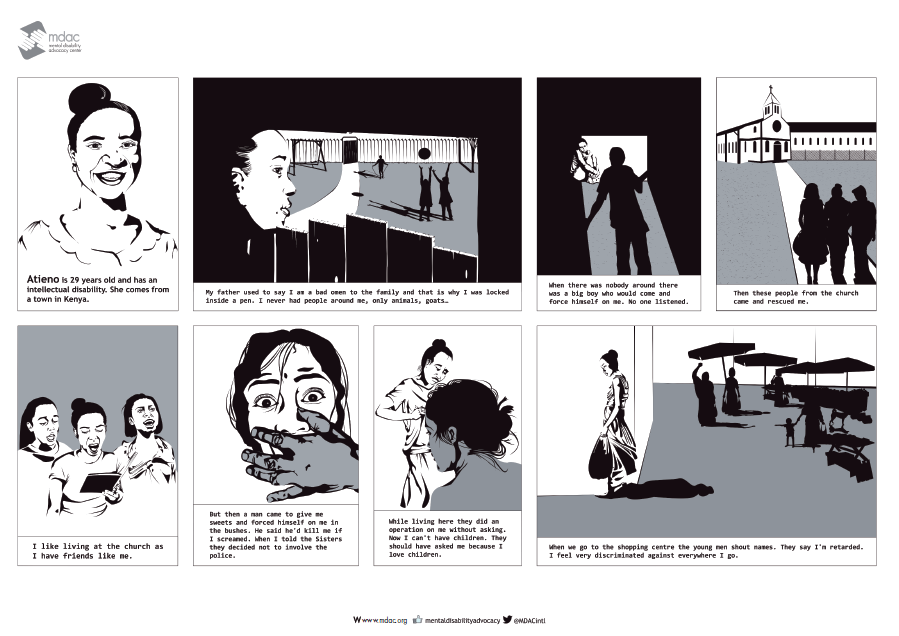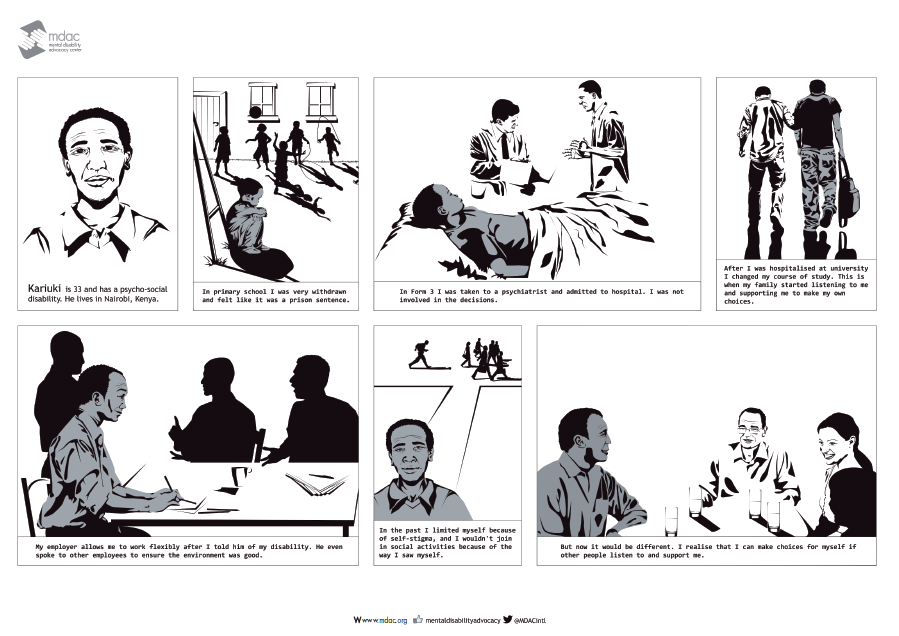Kenya - Right to Legal Capacity
MDAC Releases Major Report on Right to Legal Capacity
In early April 2014 MDAC released "The Right to Legal Capacity in Kenya”. The report highlights the voices of people with mental disabilities themselves for the first time, outlining the need for substantial legal and social reform, and provides comprehensive recommendations to bring Kenya in line with international law, and specifically right to legal capacity guaranteed by Article 12 of the UN Convention on the Rights of Persons with Disabilities (CRPD).
Key documents:
- The full report report can be downloaded here
- Press release here
- EasyRead summary and recommendations low res, high res (for printing), web accessible
- Story of Atieno, a woman with an intellectual disability
- Story of Kariuki, a man with a psycho-social (mental health) disability
The report exposes deeply-rooted oppression of people with intellectual and psycho-social disabilities, urging the Kenyan government to take practical actions to address widespread social stigma which restrict the daily lives of people with mental disabilities.
The research uncovers widespread human rights violations at many levels, including the judicial restriction of legal capacity so that family members can control peoples’ property, forced sterilisation of women without consent, widespread gender-based violence and denial of access to education and employment. Crucially, there is a complete lack of community-based supports to enable people with mental disabilities to exercise their decision-making rights, rendering many subject to the substituted decisions of families, community members and healthcare professionals.
The right to legal capacity, set out in Article 12 of the United Nations Convention on the Rights of Persons with Disabilities, is the legal grounding of the report, which analyses Kenyan legislation and social practices , describing in detail the daily restrictions placed on the lives of Kenyans with mental disabilities.
The overwhelming conclusion is that Kenyan legislation arbitrarily restricts the legal recognition of people with intellectual disabilities and people with psycho-social disabilities and fails to provide supports to help them make decisions for themselves. Legal and social barriers then entrench the deeply-rooted social prejudices that heavily restrict the lives of people with disabilities.
The report makes 10 recommendations to the Kenyan government, which will help to reverse the cultural stigma of people with disabilities in Kenya. Acting on the recommendations will allow people with disabilities to gain control over their lives, with supports where necessary, and allow them to truly feel like active members of society.
The recommendations include:
- Legislating for the recognition of legal capacity in all areas of life for people with mental disabilities;
- Ensuring all people mental disabilities can gain national identity cards, and that this data is used to plan government services which address their human rights;
- Abolishing formal and informal substituted decision-making systems which deny people with mental disabilities from making choices in their own lives;
- Removal of discriminatory terms in Kenyan legislation, including ‘unsound mind’, ‘mental incapacity’ and ‘mental infirmity’;
- Combatting high levels of abuse and violence, including gender-based violence, ensuring that access to justice is provided for victims;
- Initiation of public awareness campaigns to challenge stigma; and
- Creating pilot projects on supported decision-making for people with mental disabilities.
For further information, please contact Eyong Mbuen, Legal Officer, who has led the coordination of the project: mdac@mdac.org.



